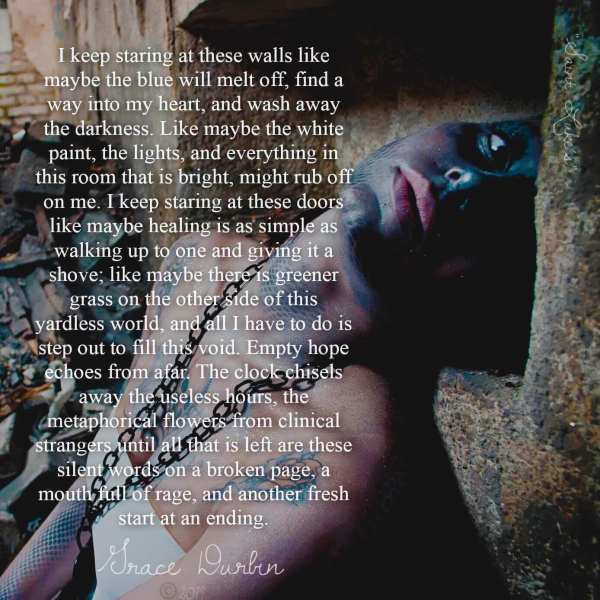When I was fifteen, I tried to kill myself.
Both my sisters had left home. One left a note behind and didn’t look back. The other moved in with a different family just a few houses away. I stayed. I had a medical condition I couldn’t get my family to face and I hid from the rest of the world. I had just been diagnosed that September. Shortly after my diagnosis, a boy who went to my school and lived up the street died by suicide the same day we received our report cards. Peers recalled him being scared to tell his father he had received a B. Two other students attempted suicide after him. Then, I became attempt number three.
The day after Thanksgiving, my parents went to my grandma’s house for leftovers. I asked to stay home that night. Looking back, maybe that was a sign I knew what I was doing and I planned it. Honestly, I don’t remember. The truth is, I was so ambivalent in my attempt and so pressured by everyone’s reaction, I lied. I claimed my overdose was caused by distraction and a horrible migraine.
Years later, a college essay forced me to reflect on that day. I stayed in denial about a lot of things. I stood by that migraine, which I did have, and shifted my focus to the abuse I endured at home. At the end of the essay, I was required to declare whether I did or did not support the legalization of physician-assisted suicide. I couldn’t figure out where I stood on the matter, so I took a break from college to decide.
(That’s another lie.)
When suicide isn’t talked about in the community or the home, it’s easy to feel like we have to hide those thoughts. So, at age thirty-one, I repeated the past and my self-destructive uncertainty with a suicide prevention campaign on Facebook to mask mine. Just over a month into my campaign, my dear friend and affectionately-adopted sister took her own life.
During our last conversation, she mentioned feeling “broken but not suicidal.” She even asked me to check on her. I wish I had understood that she was opening a door, crying for help, even if she didn’t know it. I wish I had told her, “It’s okay if you are feeling suicidal! We can talk about that!” I wish I had gone to her house. I wish I would’ve remembered to reach back out. But I didn’t know the risks; I didn’t know the signs. I couldn’t save her.
With denial and grief in one hand and suicidal thoughts in the other, I began educating myself. The more I learned, the more I realized chronic suicidality has always been a part of my life, and my inability to heal from the loss of my sister, my hesitation to finish that college essay, those were a reflection of my own unresolved suicidal thoughts. The more I learned about suicide… the more I learned about my self.
Eighteen years and one tragic loss later, I finally understood why I tried to take my own life as a teen. And it wasn’t because my sisters were gone or because I lived in an abusive home. (Although, those were certainly stressors!) It wasn’t major depressive disorder like the doctors at the inpatient youth facility tried to throw at me. It was because I was trapped by my illness. It was because I was being rejected for medical treatment. It was because I couldn’t fight for myself, and no one was fighting for me. It was because the biggest stressor in my life was was looking in the mirror, seeing the diagnosis I was facing, and knowing there was a solution, there was a way to address it—for the rest of the world, for those who could afford it. But not for me. Insurance wouldn’t cover the treatment. Hope had a price.
I kept myself hidden and protected for as long as I could. I ran from the reason for my suicide attempt as long as I could, until I had my daughter. Then, I rose from the ashes to confront the demons still burning inside, and when I found my options for medical care hadn’t changed, I learned the hardest lesson of my life: Hope is temporary if solutions are out of reach.
I don’t know if you’ve ever felt sick and alone. I don’t know if you know how it feels to look at the future with fear in your eyes while family and doctors fail you, but I can tell you how to survive: Fight. Even when things seem hopeless.
It’s okay to fight dirty when you’re fighting for life.
If you are feeling suicidal, please reach out to the National Suicide Prevention Lifeline, 1.800.273.8255 or text HOME to 741.741 to chat with the Crisis Text Line.



